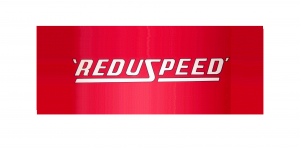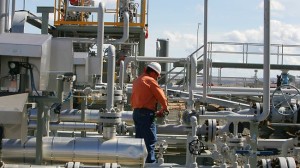

Reeves Vari-Speed transmissions are an ancient, somewhat obsolete yet still very effective speed reducer that is very good at regulating speed.
Page Engineering was the original agent for Reeves Vari-Speed reducers, manufacturing under license in Australia from 1946 to 1960, when the business was sold to Electric Control & Engineering and subsequently to Reliance Automation in 1969. November Drives took over manufacturing in 1996 and now All Torque Transmissions continues the direct lineage, proud to keep the Reeves brand alive in Australia.
Utilising a wood and leather block belt which is resilient enough to absorb overloads and shocks, the Reeves Vari-Speed was without peer for many decades.
As the Australian manufacturer and distributor of Reeves Vari-Speed components, we are still amazed at exactly how many Vari-Speed units are still going strong in the field – sometimes half a century after first being commissioned!
Usually, belt life is over ten years (sometimes over 20), and shafts are all mounted on self-aligning bearings, making them easy to replace.
Reeves Vari-Speed wood block belts are all still available; we have them made to order in the US by the same company who made them originally.
Although no longer with us, Reduspeed geared motors were a high quality, Australian made unit that deserves to be remembered.
Reduspeed geared motors commenced production in 1952, a brand of Gearmotor Pty. Ltd. The design brief given to the engineering staff called for “features necessary for units that would withstand arduous operating conditions over long periods with little maintenance”.
To meet this premise, the engineers decided to use nickel chrome steel gears, that were case hardened, and high tensile heat treated steel shafts. These would become the standard used throughout the industry in later years.
Other design features of the Reduspeed range included:
One of the benefits of the Reduspeed line was that units were rated for continuous service, with no service factors or thermals needing to be considered during selection.

Reduspeed changed ownership a couple of times through the years, being linked up first with Morse before settling into the BTR Engineering fold. BTR Engineering marketed the Reduspeed E2000 series of in-line helicals alongside the Reduspeed Eb2000 series of bevel-helicals and Redumount shaft mount gearboxes.
All Torque Transmissions understands the demands of the mechanical power transmission industry, and just how the Reduspeed range fitted into it. Although Reduspeed is no longer around, the basic premise of quality in geared motors lives on, and we make sure that we uphold this tradition with our product range.
For many years, Flender marketed the Cavex series of worm gearboxes, both in Australia and throughout the world.
Flender developed the Cavex worm gearbox for heavy duty environments. Primarily, this was achieved by utilising specialist design parameters with the worm thread profile. The heavy duty characteristics of Cavex gearboxes offer extended service life in applications such as bunker discharge conveyors and wagons, and have been specifiied at places such as Alcoa in Portland, in addition to coal energy generation.
The concave profile cylindrical worm with its enveloping wormwheel is different to conventional designs, in that the worm threads have a concave profile instead of an involute or convex one. Because of this, the teeth are subject to only low specific tooth pressure, and lubrication is assisted as the concave threads are matched to convex gear teeth.
Flender discontinued the popular Cavex worm gearbox series some years ago, favouring selling the business unit in its entirety to another firm. It is because of this decision that Cavex gearboxes are still available out of Europe, made to the original drawings and factory specifications. In fact, we have experienced no interruption to supply at all during the transition.
All Torque Transmissions has extensive knowledge of the Flender Cavex series of worm gearboxes, having supplied units where either high overload capacity, low noise development or lubrication continuity were specifically required by the application.
Australia boasts one of the single largest exploited Liquified Natural Gas (LNG) deposits in the world; with the North West Shelf Venture, as well as some significant deposits still in development such as Gorgon. These large deposits and the financial resources thus far invested to exploit them, have made LNG very political.
APPEA represents the gas producers, who believe that they should be able to get the best price for their product. In one of their key policies;
In an advanced economy underpinned by competitive markets, such as Australia, one industry should not be required to subsidise the activities of another. In all sectors of the economy – not just oil and gas – maintaining access to open and competitive markets is in Australia’s best interest.
Australian manufacturers believe that LNG should be subsidised for domestic industrial purposes. Indeed, it is one of the core policies of manufacturing lobby group Manufacturing Australia;
When we export gas at the expense of domestic users, what we’re really exporting is Australian jobs. While other countries are creating jobs by directing their energy advantages towards manufacturing, Australia is putting thousands of manufacturing jobs in jeopardy and forcing Australian manufacturers to invest offshore rather than in Australia.
The Australian Industry Group believes there should be a four-pronged ‘National Interest Test’ for any new LNG projects. These four prongs include mixing domestic and export consumption for best national prosperity, recognising existing export contracts, a seven-point approval process, and understanding the needs of both the western-state producers and the eastern-state consumers.
Natural gas supplies around one-fifth of the globe’s energy needs, compared with one-third from oil and one-quarter from coal and is the cleanest-burning fossil fuel, producing significantly lower carbon emissions than coal or oil. Qatar dominates global LNG exports with 25% of total supply, whilst Australia has increased supply over the past decade to sit at 9%. Qatar has placed a moratorium on new LNG projects, which Australian producers see as an opportunity.
 Australia’s LNG reserves are exploited by various multinationals, with Woodside, Shell, PetroChina, ExxonMobil, Chevron, and BHPBilliton all heavily involved in existing projects, and all are very keen on the outcome of any political intervention on pricing restrictions. Government pricing intervention for domestic consumption has been likened to industry protection which would act both as a foreign investment demotivator and may even draw a protectionist response.
Australia’s LNG reserves are exploited by various multinationals, with Woodside, Shell, PetroChina, ExxonMobil, Chevron, and BHPBilliton all heavily involved in existing projects, and all are very keen on the outcome of any political intervention on pricing restrictions. Government pricing intervention for domestic consumption has been likened to industry protection which would act both as a foreign investment demotivator and may even draw a protectionist response.
Overwhelmingly, Australian and international experiences of trying to protect domestic industries by restricting trade have damaged the broader economy… Further, there is no clear evidence that the gas reservation policy applied in Western Australia has delivered low gas prices for gas users.
The United States has tested the theory of the ‘national interest test’, with the Department of Energy contracting NERA Economic Consulting to test scenarios about LNG exports. All scenarios played out with a higher economic gain from allowing exports at market prices than protection for domestic consumption.
Australia’s manufacturing base is probably going to have to make do with local LNG going at the international market rate. The effects that this will have on Australian manufacturing will have to be considered over a longer period.
Gibson Battle & Company was a specialist power transmission business, which represented some of the worlds largest heavy duty gearbox manufacturers, before ceasing business in the early 2000s.
Formed in Sydney in the late 19th century when John William Gibson joined forces with Arthur Edwin Battle, the firm originally imported steam engines for the NSW coal fields, before embarking on local manufacture with the establishment of their own iron foundry.
Over time, Gibson Battle added various suppliers such as Tsubakimoto (chain), Renold (chain) and Sumitomo (cycloidal gearboxes) to its lineup. All the while, strong links with the coal industry continued, whilst the company successfully diversified into various fields, including power plant design and commissioning.
Although GB is no longer with us, many of the brands that Gibson Battle and Company introduced into the Australian marketplace have a direct presence here nowadays, so were well served by their partnership. All Torque Transmissions understands just how the Gibson Battle product range fits into the Australian industrial landscape and are able to identify many long-lost gearbox drives from this era.
